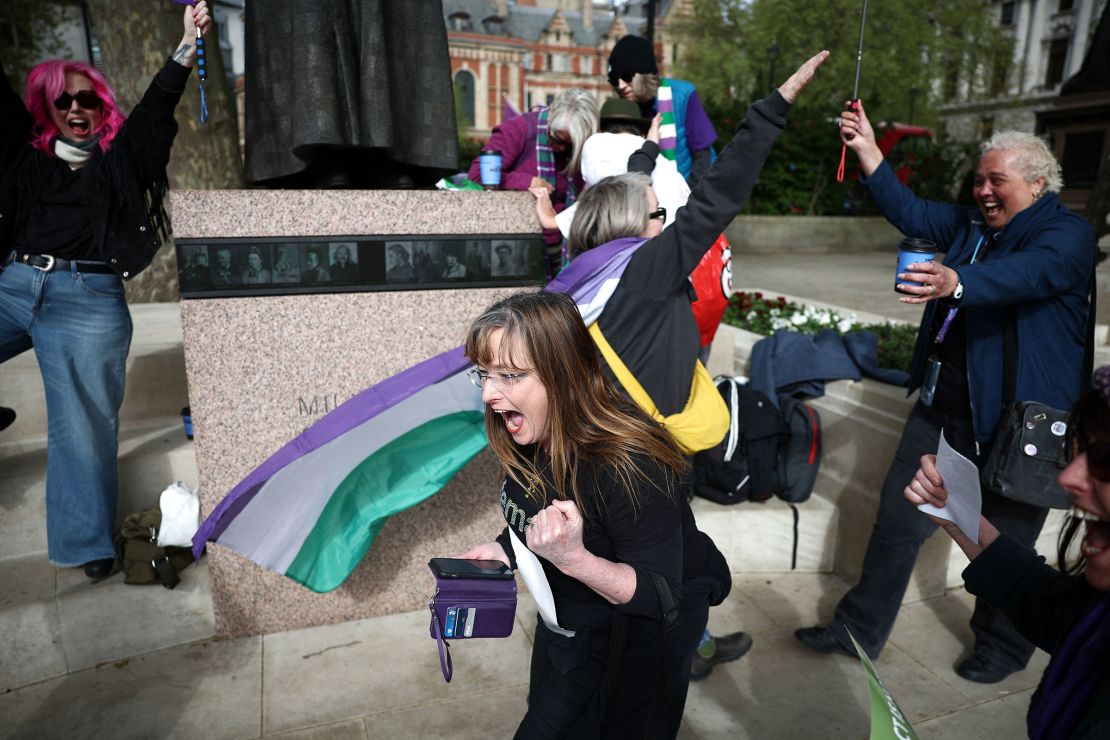“`html
UK Supreme Court Ruling Redefines “Woman” under Equality Law, Sparks Debate on Transgender Rights
A landmark decision by the United Kingdom’s highest court has redefined the legal definition of “woman,” excluding transgender women in specific contexts under the nation’s Equality Act 2010. The ruling stems from a 2018 challenge regarding laws designed to increase the number of women on boards in Scotland, yet its implications reverberate across the UK and potentially influence similar debates in the United States.
February 20, 2025
The Ruling: Biology vs. Legal Recognition
The Supreme Court unanimously ruled that the term “woman” in the Equality Act 2010 refers to “a biological woman and biological sex.” This distinction is crucial as the act protects individuals from discrimination based on several characteristics, including sex. The core of the legal challenge revolved around whether trans women holding a Gender Recognition Certificate (GRC), which legally recognizes their female sex, shoudl receive the same protections as biological women under the Act.
“The terms woman and sex in the Equality Act 2010 refer to a biological woman and biological sex,”
Lord Patrick Hodge, UK Supreme Court
Lord Hodge emphasized that interpreting “sex” as “certificated sex” would create inconsistencies within the Act, particularly concerning provisions related to pregnancy and maternity leave. The court also noted potential issues regarding single-sex spaces, suggesting that excluding transgender women from facilities like changing rooms could be “proportionate” in some cases.
For U.S. readers, this ruling highlights a point of contention increasingly debated across state legislatures. As an example, several states have passed laws restricting transgender athletes’ participation in sports, citing concerns about fairness and biological differences. The UK ruling echoes these concerns, emphasizing the importance of biological sex in specific legal contexts.
Reactions and implications
The ruling has elicited strong reactions from various groups. For Women Scotland (FWS), the institution that initiated the challenge, hailed the decision as a victory, arguing that linking the legal definition of gender to biological sex is crucial to protect single-sex services and spaces.
“The court has given the right answer: the protected characteristic of sex – male and female – refers to reality, not paperwork,”
sex Matters
Conversely, LGBTQ+ advocacy groups have expressed serious concerns. Stonewall, a leading LGBTQ+ charity in the UK, described the decision as “incredibly worrying for the trans community.” They fear the ruling could erode existing protections and contribute to further marginalization.
“I had a feeling these changes would be implemented in the UK following the US news, I hoped that deep down I would be wrong. Today for the first time, I am scared about walking out of my front door,”
Statement from a Transgender Individual
In the U.S., the ruling could embolden groups advocating for similar legal interpretations of sex and gender. The ongoing debate around Title IX,which prohibits sex-based discrimination in education programs and activities receiving federal funding,could be particularly affected. A similar legal challenge in the U.S.could redefine “sex” under Title IX, potentially impacting transgender students’ access to sports, bathrooms, and other school facilities.
| Perspective | Key Argument | Potential Impact in the U.S. |
|---|---|---|
| gender-Critical Groups | Biological sex is essential for defining “woman” under the law. | Could support similar legal challenges in the U.S., impacting policies related to sports, single-sex spaces, and healthcare. |
| LGBTQ+ Advocates | The ruling undermines transgender rights and increases discrimination. | Raises concerns about potential rollbacks of transgender protections in the U.S.,leading to increased legal battles and advocacy efforts. |
| Legal Scholars | The ruling highlights the complexities of balancing equality laws with biological realities. | spurs debate on how to interpret existing anti-discrimination laws to include or exclude transgender individuals, creating legal uncertainty. |
Transgender Rights in the US: A Shifting Landscape
The legal landscape for transgender rights in the U.S. is complex and constantly evolving. While the Supreme Court’s 2020 decision in *Bostock v. Clayton County* extended Title VII employment protections to LGBTQ+ individuals, the scope of these protections remains contested. Many states have introduced or passed legislation targeting transgender individuals, particularly in areas such as sports participation, gender-affirming care, and bathroom access.
For instance, according to the Human Rights Campaign, 2023 saw a record number of anti-transgender bills introduced in state legislatures across the country. These bills range from outright bans on gender-affirming care for minors to restrictions on transgender people’s access to public accommodations.
The debate often centers around the interpretation of terms like “sex” and “gender identity” in existing laws. Some argue that “sex” should be interpreted solely as biological sex assigned at birth, while others advocate for a broader definition that includes gender identity. The UK Supreme Court ruling reinforces the former viewpoint, potentially influencing legal arguments and court decisions in the U.S.
Consider the case of Cece Telfer, a transgender woman who was barred from competing in women’s track events after winning the NCAA Division II national championship. Her case exemplifies the challenges faced by transgender athletes and highlights the ongoing debate about fairness and inclusion in sports.
Looking Ahead
The UK Supreme Court ruling is likely to have far-reaching consequences, both in the UK and potentially in the United States. It underscores the deep divisions surrounding transgender rights and the ongoing struggle to balance competing interests. While the court affirmed that transgender individuals are still protected under the Equality







